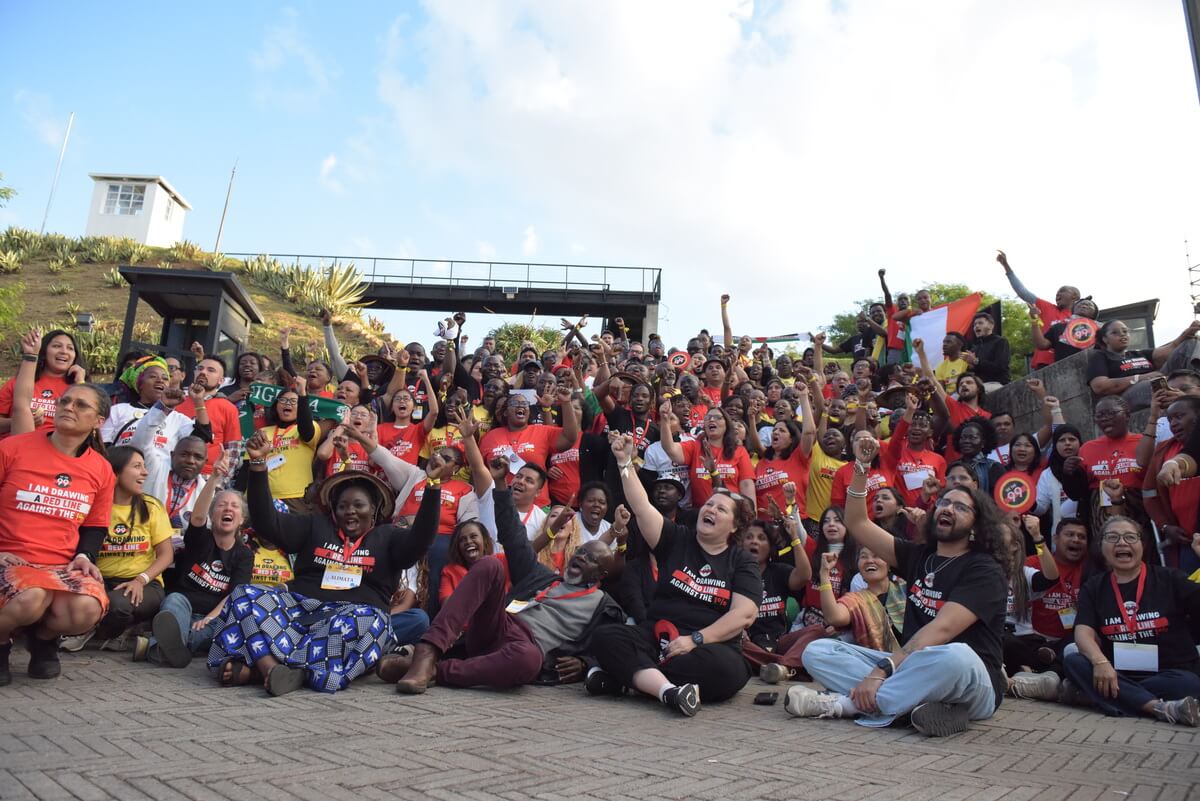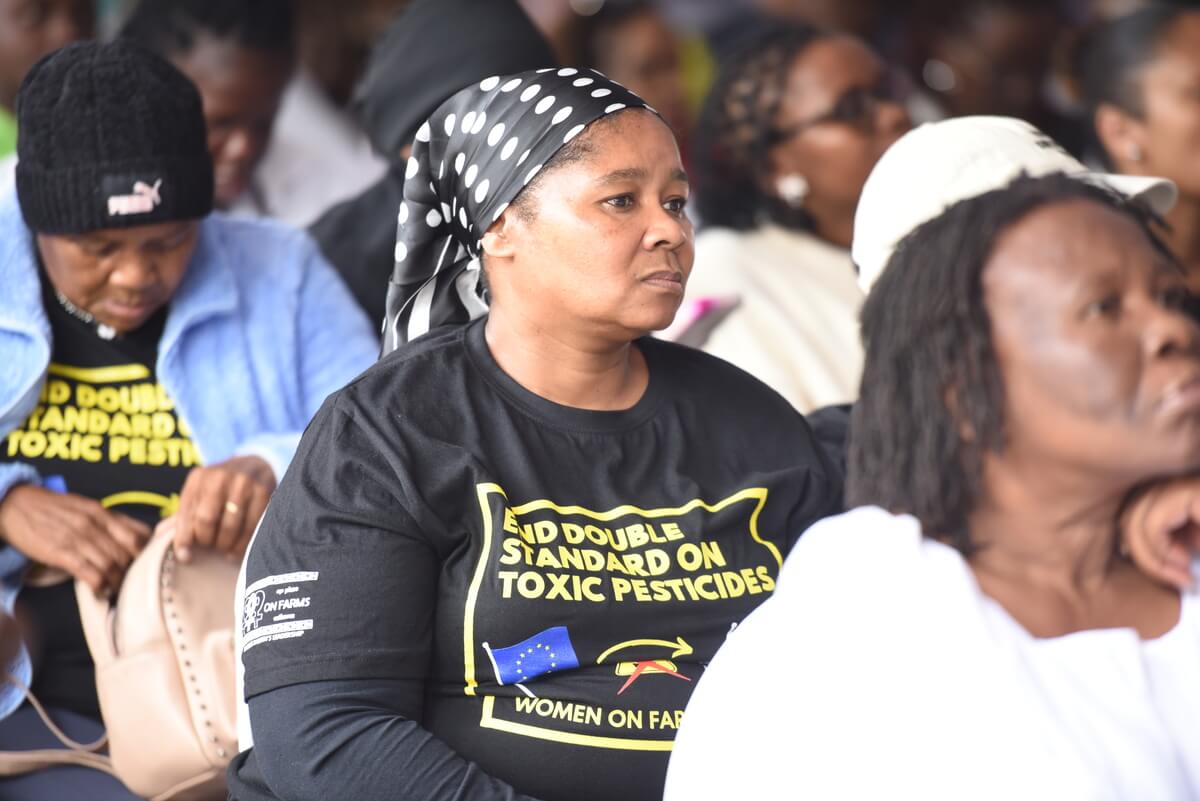By Jenny Ricks and Deepak Xavier*
Barely 10 Kilometres North East of Nasrec Expo Centre in Johannesburg, South Africa – the venue for the G20 Leaders Summit this year – is the historical Constitution Hill, popularly known as “a living museum that tells the story of South Africa’s journey to democracy”. As the world’s most powerful leaders meet behind closed doors at Nasrec this week, the former apartheid prison will publicly be writing another page in the history of global economic emancipation.
Movements, workers, activists, thinkers, creatives, artists, and communities from across South Africa, Africa, Asia and Latin America are gathering for a three days’ People’s Summit for Economic Justice – a counter to the G20 – to build the power of the 99 percent. The Constitution Hill’s Old Fort, Women’s Jail, and former men’s prison cells among other places will host radical conversations, art, music, and action for the Global Majority to tell their own story, share struggles and solutions, and show that another world isn’t just possible - it’s already being built by communities writing their own future.
It is now an open secret that the agenda and resolutions made at meetings like the G20 Summit have no interest of the majority – the 99% – at heart but for a few billionaires and elites selfishly obsessed with building bank accounts and amassing power.
For over two and half decades of the G20’s existence, the Group of 20 which accounts for over 85% of the global GDP has failed to use its combined economic weight to steer global financial, trade, development, and fiscal policies to address global economic and environmental challenges. Instead it has served the interest of the 1 percent. Elites, corporates, and billionaires.

Resultantly, a handful of billionaires and super rich people globally have amassed far more wealth than they need, abusing the power they possess and are wrecking democracies across the world as they make rules in their favour at the expense of the 99 percent and the planet.
The first ever G20 global inequality report published earlier this month by the ‘Extraordinary Committee’ of independent experts – appointed by South African President, Cyril Ramaphosa shows the richest 1 percent has captured 41 percent of all new wealth since 2000, while the bottom half of humanity received just 1 percent. The report notes that one in four people globally now face food insecurity even as the wealth of billionaires reaches levels equivalent to up to 16 percent of global GDP. Those words will not mean much to those on the frontlines of inequality without action, without redistribution.
The International Monetary Fund, the World Bank, and other bodies have also acknowledged that extreme inequalities are thwarting the pace and sustainability of economic growth, eroding social cohesion and trust, and undermining democratic institutions and political stability that is fuelling conflict and social unrest. However, they are still part of the problem, not the solution.
Enraged young people from Morocco to Madagascar, Kathmandu to Lima continue to lead street protests worldwide demanding accountability and challenging economic systems because they are not working for them. They are frustrated by poor service delivery, abuse of power concentrated in the hands of a few, unfulfilled promises, economic systems that continue to squeeze the little they earn, unemployment, unjust debt and climate breakdown.
This is a time bomb and a bigger explosion awaits. This will hit everyone regardless how fat their bank account is, and the planet. But we have a solution to this. This is not rocket science and the global majority, the 99%, have the answers already and are putting them into practice.

Wealth taxes are a progressive solution to address extreme inequalities – far better than the consumption taxes that many governments in the Global South are imposing on their people to service unjust debt and compensate for unpaid taxes by the super-rich. Taxing the super rich can generate significant recurring revenue, and restore public trust. Tax revenues from the super rich are enough to fund essential services, such as education, healthcare, and social safety nets, which are key drivers of long-term inequality reduction.
Investing in climate justice – making rich polluters pay for just transitions; recognising and redistributing care to guarantee reproductive justice and bodily autonomy and protecting civic space and cultural rights by defending freedom to speak, organise, and create are among other solutions.
The 2025 G20 Leaders Summit taking place not far from the We the 99 Peoples Summit has an opportunity to right the wrongs of the past by listening to the global majority that are gathered at Constitution Hill. Global leaders, including the G20, must stop turning to the same elites who created and continue to fuel the inequality crisis for solutions. Instead, they need to listen to the voices of the 99% – the people who have endured inequality and survived against all odds.
The 99% hold the answers. And the answer is clear: replace the system built by the 1% with a system designed for and by the 99%.
- *Jenny Ricks is the General Secretary for Fight Inequality Alliance, a co-convener for the We The 99 People’s Summit for Economic Justice.
- *Deepak Xavier is the Global Convener for Fight Inequality Alliance, a co-convener for the We The 99 People’s Summit for Economic Justice.
